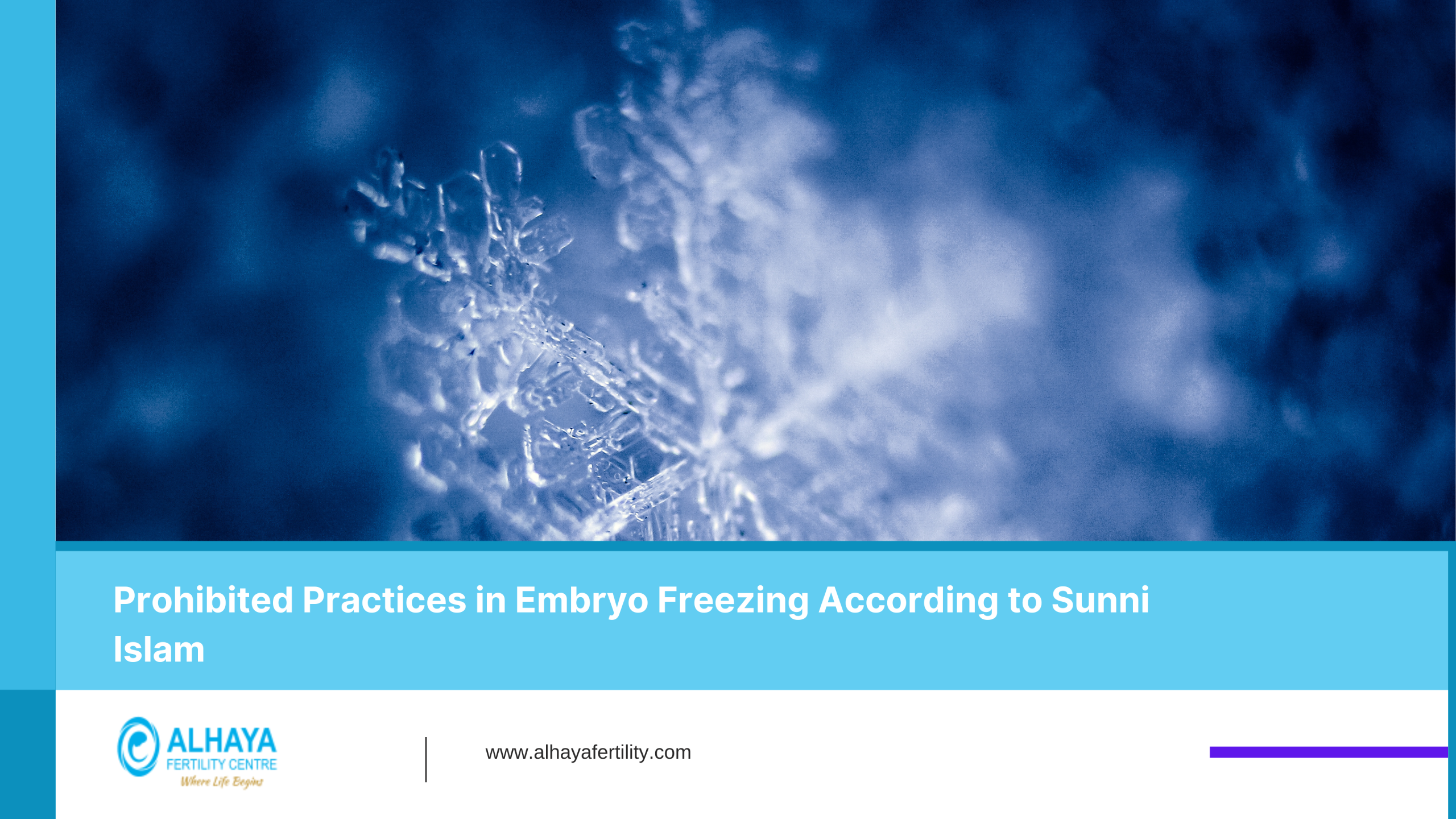Embryo freezing has emerged as a powerful option in assisted reproduction, helping individuals and couples preserve fertility for future family planning. However, for many Muslims, understanding the religious permissibility of this method is crucial. This article explains which practices in embryo freezing are considered haram (prohibited) in Sunni Islam, while also clarifying what is allowed when done in accordance with Islamic values.
The Rise of Embryo Freezing
Embryo freezing, or cryopreservation, involves freezing fertilised eggs for future use. This technology is often used during IVF cycles to store surplus embryos or to preserve fertility for women delaying pregnancy for medical or social reasons. It offers flexibility, reduces the need for repeated egg retrieval, and increases the chances of pregnancy in future cycles. However, despite its medical advantages, it is important to explore how this practice aligns with Islamic rulings.What Is Considered Haram in Embryo Freezing?
Sunni scholars have outlined clear boundaries based on the principles of Shariah. Here are the main practices considered haram:1. Use of Donor Sperm or Eggs
Islam strictly prohibits third-party involvement in reproduction. This includes donor sperm, donor eggs, or donor embryos. The reason is to safeguard lineage (nasab) and avoid confusion of parentage. According to prominent Sunni fatwas, using donor material is equated to violating the exclusivity of the marital bond.2. Surrogacy
The use of a surrogate mother is not allowed in Sunni Islam. Implanting a fertilised egg into another woman’s womb, even if she is a relative or another wife, is seen as introducing a third party into the marital relationship. This, too, leads to lineage confusion and is forbidden.3. Fertilisation or Transfer Outside of Marriage
All fertilisation and embryo transfers must occur within a valid marriage contract. If a woman is divorced or widowed, it is haram to implant a fertilised embryo using her former husband’s sperm. The embryo must not be used once the marriage ends.4. Mixing or Swapping of Embryos
Any error or deliberate action that leads to the mixing of embryos, sperm, or eggs between couples is considered a severe violation. Clinics must ensure strict controls to prevent such occurrences.Conditions That Make Embryo Freezing Permissible
Dar al-Ifta of Egypt, a leading Sunni fatwa body, has stated that egg and embryo freezing is permissible under specific conditions:- The fertilisation must involve the husband’s sperm and the wife’s egg during their marriage.
- The embryo must be stored securely with no risk of mixing with other genetic material.
- The embryo can only be implanted in the same woman who produced the egg.
- The process must not result in harm to the fetus due to the freezing or thawing procedure.
Common Questions: Why Freeze Eggs Before Marriage?
A frequent question arises: why do some Muslim women choose to freeze their eggs before marriage? Is this allowed? Sunni authorities like Dar al-Ifta clarify that freezing eggs before marriage is permissible, as long as fertilisation only occurs after marriage with the husband’s sperm. This practice is especially relevant for women diagnosed with medical conditions that may compromise their fertility or for those who are not yet married but wish to preserve the option of motherhood later.Infertility and Age: The Medical Perspective
Fertility declines with age. In women aged 35-39, infertility rates can reach 25%. After 40, the rate increases further. Freezing eggs at a younger age can significantly improve the success rate of future pregnancy. The WHO reports that one in six people globally faces infertility, with both male and female factors contributing.Sunni Fatwas on Reproduction Ethics
The following rulings reflect the Sunni Islamic stance:- IVF is allowed if both the sperm and egg come from a married couple.
- Any procedure involving third-party donation or surrogacy is prohibited.
- The lineage of the child must be clearly traceable to both biological parents.
- Egg freezing before marriage is allowed, but use must be within marriage.
Final Thought
While fertility preservation is a modern solution, it is possible to navigate it within the bounds of Islam. Muslim women and couples should ensure that any fertility treatment respects their faith and ethical boundaries. If you're considering egg or embryo freezing, it's essential to choose a clinic that understands your religious concerns.Consult with our fertility experts to explore safe, Shariah-compliant fertility options tailored to your needs. Our team ensures all procedures align with Islamic ethics and provide the highest standards of care.


